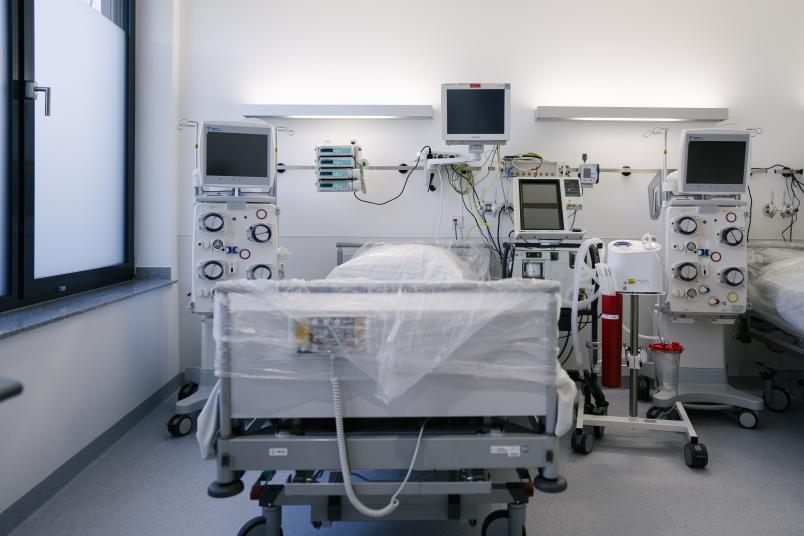
Healthcare research
Parkinson’s patients are particularly affected by Covid-19
Data for Germany show significantly more severe courses of the disease. This could be due to an increased frequency of risk factors.
Compared to patients who don’t have Parkinson’s disease, patients with Parkinson’s disease who were hospitalised for Covid-19 were more likely to develop a more severe course of the disease. The mortality rate of patients hospitalised with Parkinson’s was also higher. This emerged following an evaluation of the data from the first wave of the pandemic by a team from the Department of Neurology at the St. Josef Hospital of Ruhr-Universität Bochum (RUB, Director: Professor Ralf Gold). A reason for these findings could be due to the fact that Parkinson’s patients often also have many risk factors for a severe course of Covid-19. For the first time, the cross-sectional study provides detailed nationwide data. The research team led by Professor Lars Tönges reports in the journal Movement Disorders of 4 May 2021.
Nationwide analysis of hospital data
The team headed by Lars Tönges has analysed data on Parkinson’s treatment in 1,468 hospitals. The data were taken from nationwide databases in which information on the treated diseases and of treatments carried out in hospitals is publicly collected, for example by the Institute for the Hospital Remuneration System or the Federal Statistical Office.

A comparison between the period of the first wave from 16 January to 15 May 2020 with the same period of the previous year showed that overall hospital treatments due to Parkinson’s disease had decreased by almost one third during the first wave. At the peak of the wave, the number of cases even fell by a good 70 per cent. The reason for this was, on the one hand, the patients’ concern about contracting the SARS-CoV-2 virus in hospital. On the other hand, many non-emergency treatments were postponed to ensure intensive care capacity.
Frailty increases the risk
The analysis also showed that Covid-19 was more common in hospitalised patients with Parkinson’s disease than in patients without Parkinson’s disease, especially in those of advanced age over 65 years or with particularly severe Parkinson’s disease. It was also confirmed that Parkinson’s patients who had Covid-19 were more likely to be affected by the known high-risk conditions. “Parkinson’s patients may be at particular risk for severe Covid-19 due to frailty, which increases with age and advanced disease stages,” explains Lars Tönges. “Lung function may be impaired by common comorbidities and respiratory muscle weakness associated with Parkinson’s. In addition, dysphagia makes people more susceptible to pneumonia."
More deaths than in the previous year
In the nationwide cross-sectional study conducted by the neurologists in Bochum, the hospital mortality of Covid-19 patients with Parkinson’s disease was higher than that of Covid-19 patients without Parkinson’s disease, especially in those between 75 and 79 years of age. The Parkinson’s patients who died with Covid-19 were more likely to have chronic kidney disease and were more likely in a later stage of the disease compared to survivors. “Remarkably, more Parkinson’s patients died in hospitals in 2020 than in 2019, which may also be due to circumstances associated with overall Covid-19 disease management,” concludes Tönges.
“The study illustrates the need to ensure optimal treatment of Parkinson’s patients despite the current pandemic,” stress the authors. Telemedical services, for example, can also support this in the future. Data on the developments during the second and third waves are expected soon.
Parkinson’s disease